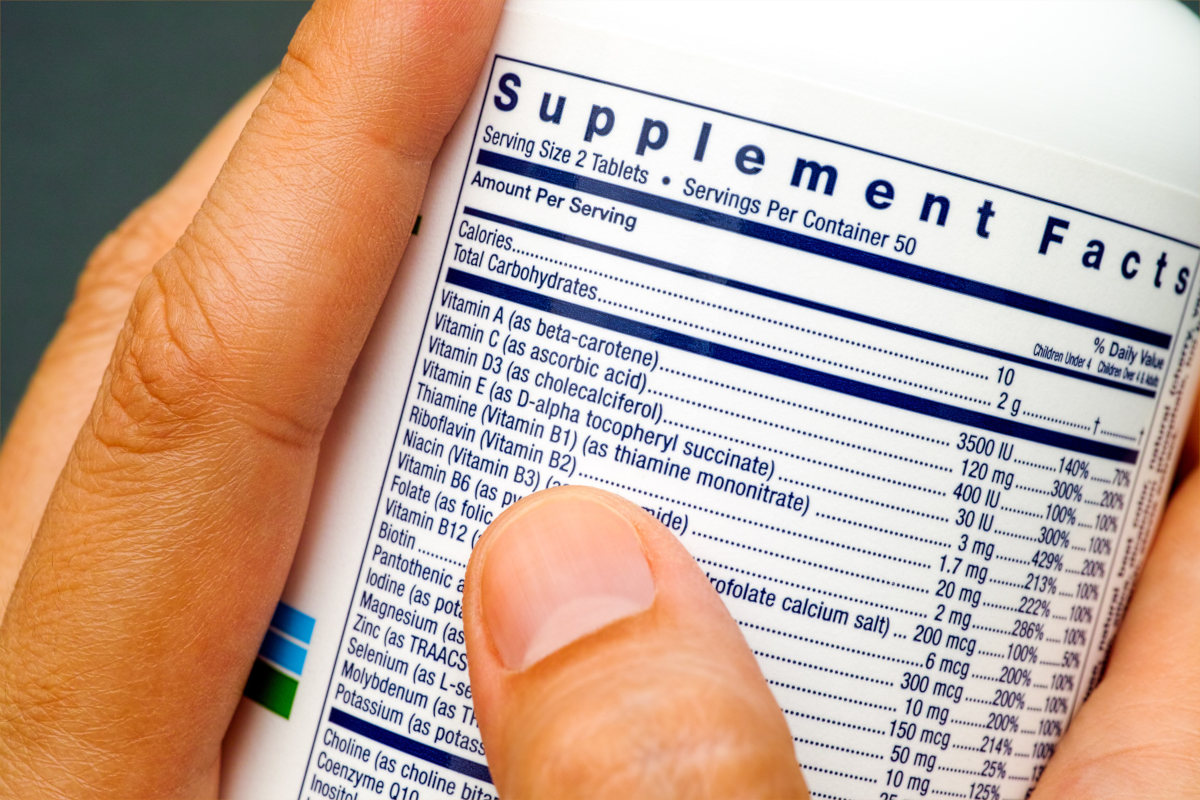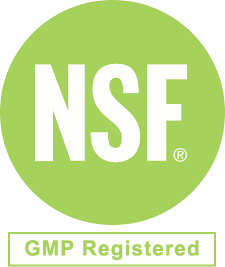
6 Things to Know About the Supplement Facts Panel
We all know that the American diet isn't as healthy as it should be. Adult obesity rates have doubled since 1980 and it's not because we're eating our fruits and vegetables.
We know we should take supplements to help us stay healthier but there's still a lot of ignorance on the part of the public. Even trying to read the supplement facts panel, it can seem more like a foreign language than information that's supposed to help us make wise choices.
But our health is important. If you're going to make the investment in supplements, you need to know the real supplement facts. With that in mind, here are six things to know about the supplement facts panel.
1. The Serving Size on the Supplement Facts Label
It doesn't matter if your supplements come in the form of a tablet, liquid, or capsule, there will always be a serving size listed on all dietary supplements. It's always the first thing listed.
That's because it's the most important piece of information you need. Every other bit of information listed in your nutrition supplements is based on this serving size.
If the serving size for your Candicidal is one capsule then two capsules will provide you with twice as much of each ingredient as what's listed on your vitamin label.
Know the Real Supplement Facts
Check with your doctor to ensure you're taking the right dosage for your needs. Sometimes you may need to increase or decrease your dosage to ensure maximum benefits.
Keep in mind that these supplements have, in theory, been tested for toxicity before they're bottled. For the majority of supplements there has been no human clinical data or testing for the product or active ingredient, so the serving size is usually just an estimation.
2. Percent Daily Value (%DV)
The percent daily value (%DV) or (PDV) that you find on the back of your nutrition supplements are the total amount of nutrients that the Food and Nutrition Board of the Institute of Medicine of the National Academy of Sciences has established.
It's based on the Dietary References Intakes (DRIs) established by this Board. When new scientific information comes out, the DRIs are examined and updated. In 2010 there were new DRI updates for calcium and vitamin D.
However, because there is new data surrounding many nutrients, a debate has sprung up about the specific daily values. This is particularly true for amino acids as their DRI has been difficult to establish.
If you see an asterisk next to an ingredient it simply means that no daily value has been formally established. Those concerned about what this could mean to their health should continue to do further research on the ingredient on their own or with their doctor.
3. Storage and Expiration Date
The Federal Drug Administration's (FDA) Good Manufacturing Practices (GMP) does not currently require supplement companies to provide an expiration date on their products.
However, if there are known expiration dates for certain ingredients contained in your supplements, then the company must provide supporting data on the stability of that ingredient. The data must show stability in various environmental conditions over a period of time.
Thankfully, the best health supplements are focused on your best interests. You'll find most supplement labels do have an expiration date, or use-by date listed.
Some nutrition supplements also list storage conditions. Some may require refrigeration after opening. Other vitamin labels ask you to store your supplements in a cool, dry place and out of reach of children.
4. Key Ingredient Potency
Certain healthy supplements contain only one key ingredient, like Ionic Zinc. Other supplements like a multi-vitamin contain several key ingredients.
Your supplement bottle will list the key ingredients along with their amounts per serving and the percentage daily value if there is one available. There are times you'll find one key ingredient listed in bold. Below it, the nutrients found in this ingredient are listed.
CoreBiotic, an advanced spore-based probiotic lists CB Complex in bold with 11 billion CFU listed as the amount per serving. Below that, you'll find Bacillus Coagulans, Lactospore, and Bacillus Stubilis listed as sub-components.
Breaking the ingredients down lets you evaluate the potency of all the ingredients. You can see for yourself how much of a certain nutrient is in the ingredient the manufacturer used.
Not all nutrition supplements will break down their ingredients in such a way. Some will only list the total amount of the major blend of ingredients.
And while the vitamin label must show the proprietary blend of ingredients in the supplements, there is no law that states the amounts or ratios of specific ingredients must be listed.
5. Units/Amounts
Since most of us don't really use this type of measurement in everyday life, it can be hard to understand how much you're really taking of any type of supplement. Let's break it down with a little math reminder.
The most common units of measurement used on dietary supplement labels are milligrams (mg), micrograms (mcg), and International Units (IU).
Milligrams and micrograms are units of mass. A milligram is equal to .001 grams. A microgram is equal to .001 milligrams.
An IU is used to measure biologically active substances such as vitamins. IU's vary from substance to substance.
6. Other Ingredients
Often there are other ingredients listed that aren't used for your nutritional benefit. Instead, they're used to help make gel capsules or are used as fillers or binders. This is the section where it's labeled.
In the case of Ionic Zinc, it also contains water. Lysine capsules also contain vegetarian capsule (cellulose, water) and ascorbyl palmitate.
You'll also find any allergens listed in this section. Any warnings regarding potential allergen cross-contamination are listed here as well.
However, while it's true that a manufacturer has to list allergen ingredients, they don't have to mention any potential for cross-contamination if the manufacturing facility shares its resources with other companies making other products.
Work With the Best
The best health supplements are happy to be transparent with their customer base. They also know that listing supplement facts makes their customers trust them and creates loyalty.
But creating the best starts by choosing the best manufacturer to help you create great nutrition supplements. We can help.
Contact us today to learn how we can help you build a successful dietary supplements company.
- Posted By: Biovation Labs
- Comments: 0
- Categories: Supplements Blog
Leave a Comment Cancel reply
You must be logged in to post a comment.





